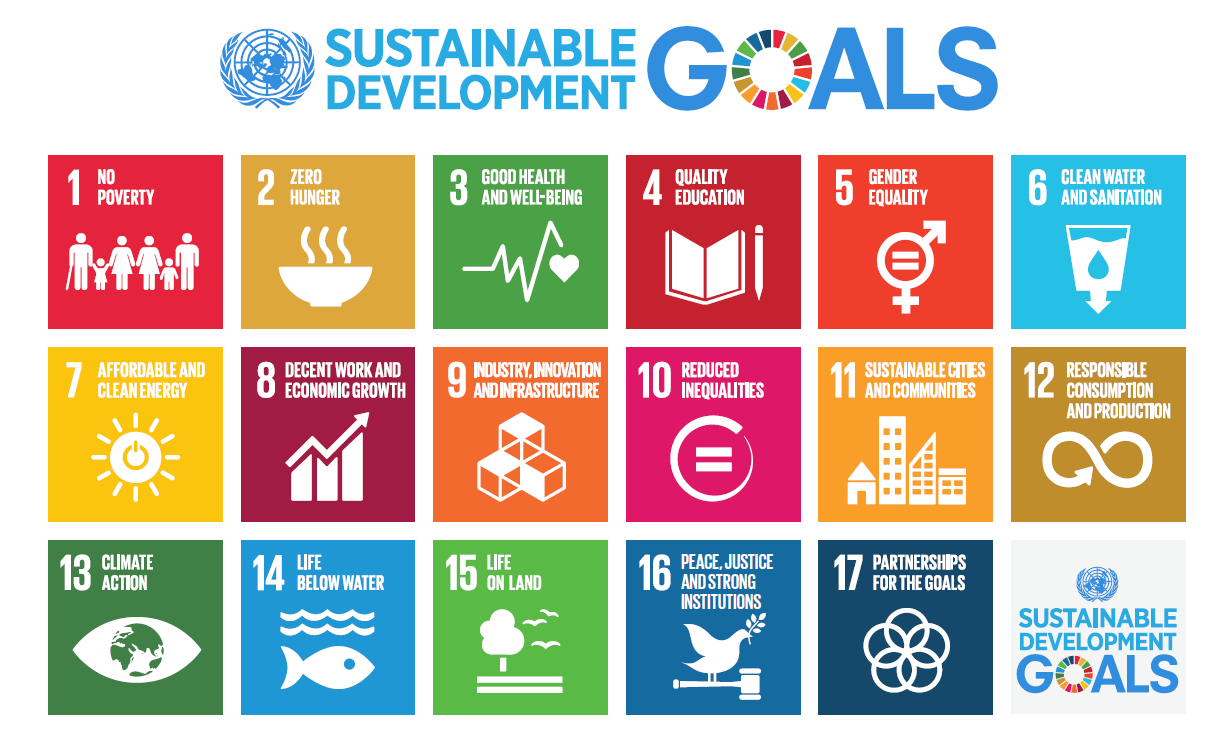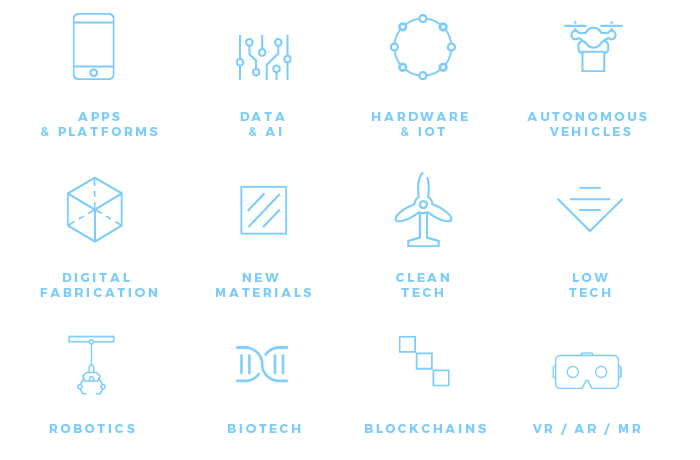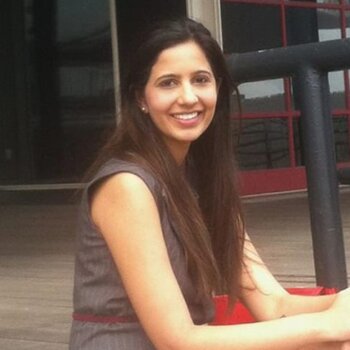I was trained as an IT engineer, then spent a few years in the corporate world before bootstrapping a think-tank and global network on new economies and open innovation. Here, I explored themes like blockchains and ICOs, circular economy for smart cities, impact investing and hardware for good.
Two years ago I co-organized a summer camp/incubator in a French castle where 100 makers had 24/7 access to a machine shop, to build sustainable products like solar generators and portable water filters. The final results were showcased during COP21, the U.N. climate summit. Although the experience itself was inspiring, it made me realize how big a gap remained between the impact of small-scale projects like these, and the magnitude of the problems we need to solve.
I became obsessed with the intersection of tech and impact entrepreneurship. The main question for me was how to find the best approach to source, fund and support ventures that combine tech and impact in a systemic and scalable way. So I brought together a small team from Paris and Rio de Janeiro, and a network of friendly partners, to explore these questions:
- Technology: where and how can technology make the biggest difference in tackling the world’s toughest challenges?
- Entrepreneurship: what are the best tools, programs and partnerships to support high-impact ventures?
- Venture Funding: what is the new landscape of venture funding, and which model is best suited for each type of company?
Now you may wonder, how exactly are these themes connected?
Technology is the answer. But what was the question? — Cedric Price, architect
The Double Singularity
It seems we are collectively riding a train heading full speed toward not one, but two ‘singularities’. A singularity is a place (in time or space) where change becomes exponential and its effects are thus infinite — like gravity in a black hole. This is a place where linear thinking does not apply anymore.
One singularity humanity will encounter very soon, is a system crisis driven by wicked problems. By 2050, there will be ten billion people living on this planet, and 70% of them will be in cities. All of these people will need healthy food, clean water, good education, quality housing, and reliable infrastructure. Yet today planetary boundaries are being crossed, with climate change threatening the future of our civilisation. All the while eight menalone own as much as the poorest half of the world. Or as scientists predict the rise of super microbes resistant to antibiotics.
To get a global perspective on these challenges, the U.N. established a list of 17 Sustainable Development Goals (SDGs) to address by 2030. (*)

The second singularity is a technological one, driven by the accelerationof digital and exponential technologies. Over the last 25 years, the digital revolution has reshaped entire industries like media and commerce, and is now entering finance, transportation, agriculture, healthcare. Connectivity has changed our behaviours, even our brains, and software is eating the worldbut this may only be the tip of the iceberg. Emerging technologies are now advancing quickly in fields like synthetic biology, machine learning, robotics, digital fabrication, the internet of things or blockchains.
Not only are these technologies exponential, but also combinatory. In what the World Economic Forum calls “the Fourth Industrial Revolution”, there seems to be many promises, but also new challenges. What is the future of work when automation is everywhere? How do we ensure that the benefits reaped are fairly distributed across society? Will our consumption of natural resources be exponential too, or will circular economy principles prevail? How do we guarantee the safety of biotech, nanotech, or AI?
Entrepreneurs and Wicked Problems
We think purpose-driven entrepreneurs can help tackle the world’s biggest challenges, by steering the forces of technological acceleration in the right direction. Or to put it in another way, entrepreneurs may be able to harness one singularity, to tackle the other one.
Public trust in governments, business, the media and even NGOs has never been so low. Entrepreneurs on the other hand, are the new rock stars — or the new politicians. The good news is that their new icon Elon Musk is not building a better iPhone, but a better energy future, a plan to avoid an AI apocalypse, and a hard-drive backup of humanity on Mars.
Around the world, a small but growing number of investors, accelerators, universities, ecosystem builders, and global communities are making similar assumptions. Topics like impact and ethics are increasingly being discussed within the tech community. At the same time, traditional social entreprises and impact investors are now turning to technology.
However, we should be careful not to fall into techno-solutionism — the idea that any problem can be solved with the right piece of code. The problems we are talking about here are too big and too complex for any silver bullet. I think we need System Entrepreneurs who can target the root causes of problems, embed their solutions within the larger system, anticipate side effects, think long-term and “lock” their mission into their business model.
A systems thinking approach is also necessary to understand the environment in which these ventures operate, identify the gaps and propose new solutions. These are the new frontiers we are exploring.
Exploring The Frontiers of Impact
We chose to focus our work on three core components of this operating environment: Technology (for Impact), Entrepreneurship (and how best to support it), Venture Funding (and how to do it right). We aim to produce a synthetic overview of the opportunities and challenges along these themes, hoping it will help others develop a healthy Tech For Good ecosystem.
Technology — where and how can tech make the biggest difference in tackling the world’s toughest challenges?
We aim to make sense of the rapidly evolving technological landscape, map the most promising areas of impact on SDGs, and highlight key challenges and pitfalls. We will explore subjects like blockchains for supply chain transparency, drones for reforestation, machine learning to decrease unemployment, sustainable protein made by synthetic biology or from insects, low-tech networks to empower local farmers and digital platforms to distribute clean water. We will also highlight the sectors where we think a technology breakthrough is necessary, and where innovation is more needed in the distribution or business model.

Entrepreneurship — what are the best tools, programs and partnerships to support high-impact ventures?
We will dive into the changing landscape of venture support programs like incubators, accelerators, studios, campuses, etc. Some of them seem to demonstrate results while others (many?) are failing. Some are moving upstream while others go downstream. Some are massive and industry agnostic while others focus on a vertical. And many experiment with new products and services, business models or geographies.
Another area of interest will be how startups and established companies engage in fruitful collaborations. Or the convergence between technology and impact entrepreneurship, especially in the ways companies articulate, lock-in their mission, and how they measure their impact.
Venture Funding — what is the new landscape of venture funding, and which model is best suited for each type of company?
Finally, we will investigate: key trends and new approaches in VC and Angel investing, the growth of Impact Investing, new financial instruments like Impact Bonds, alternative stock markets, and technology disruptions of finance through data science, platforms and ICOs (Initial Coin Offerings where startups issue their own crypto-currency and pre-sell units to early adopters and investors). There is an incredible amount of creativity right now in ways to allocate capital, and we hope this diversity can help address the 2.5 trillion investment gap in the Sustainable Development Goals.
Technology is not good or bad. It is not neutral, either — Melvin Kranzberg, historian
Our Road Map, And How To Get Involved
So what are our goals in practice? First, we will regularly share our findings here on this Medium, and publish a series of three reports in 2018 with actionable knowledge and ideas. We will also build a community of experts and practitioners, mostly on our private Slack group. Finally, we hope to identify the main barriers preventing the growth of the Good Techmovement, and how we could bridge those gaps in the future.
To achieve that, we started our research this summer, and it will span over one year. We will review cutting-edge practices, dive into existing literature, interview key experts and practitioners, and visit some of the world’s most exciting innovation ecosystems.
All of that is possible thanks to an amazing (and growing!) team, supporters who believed in our work, friends and collaborators helping us on our journey, as well as advisors and connectors who have already pointed us to some of the smartest minds on the planet.





























